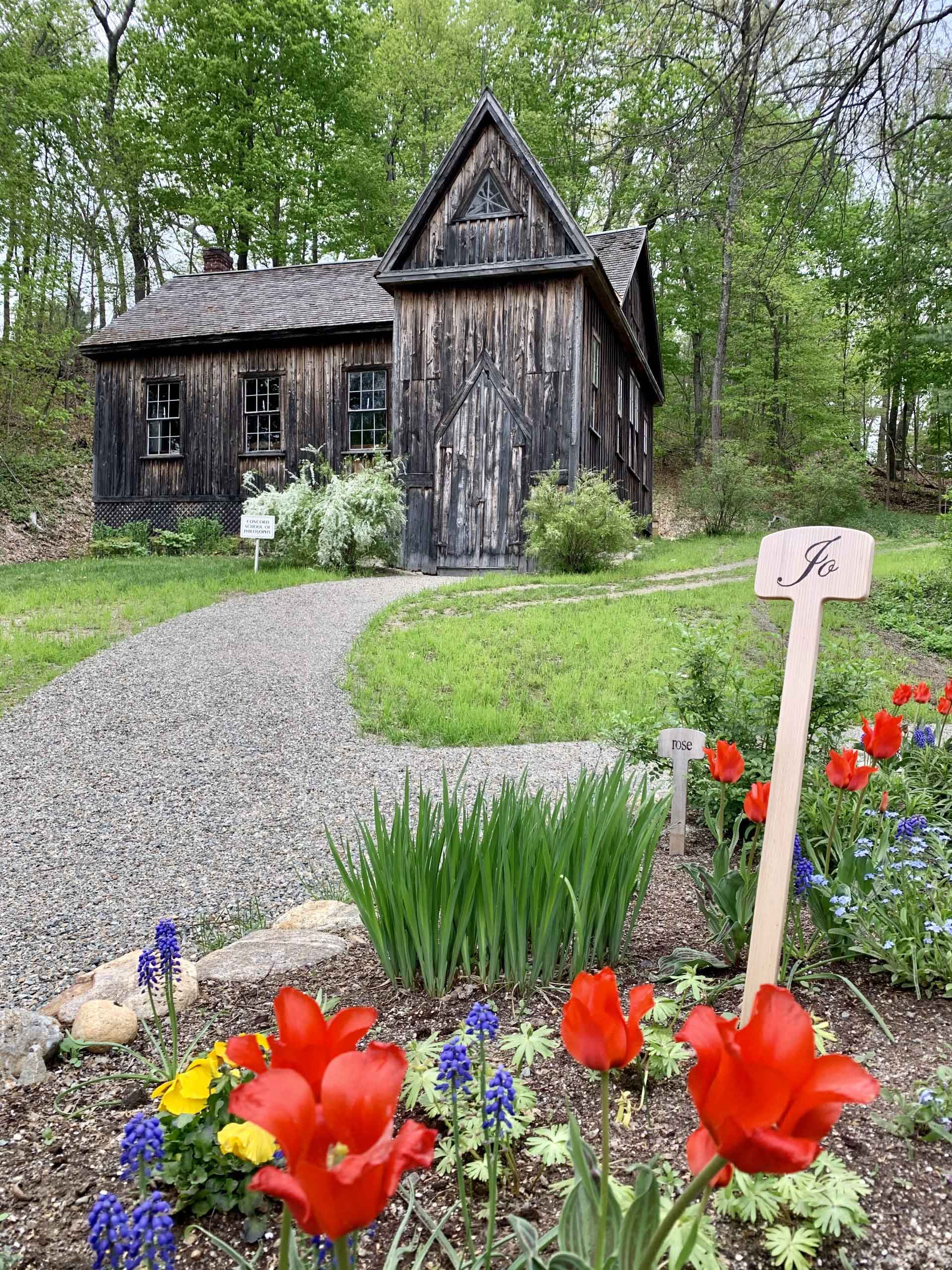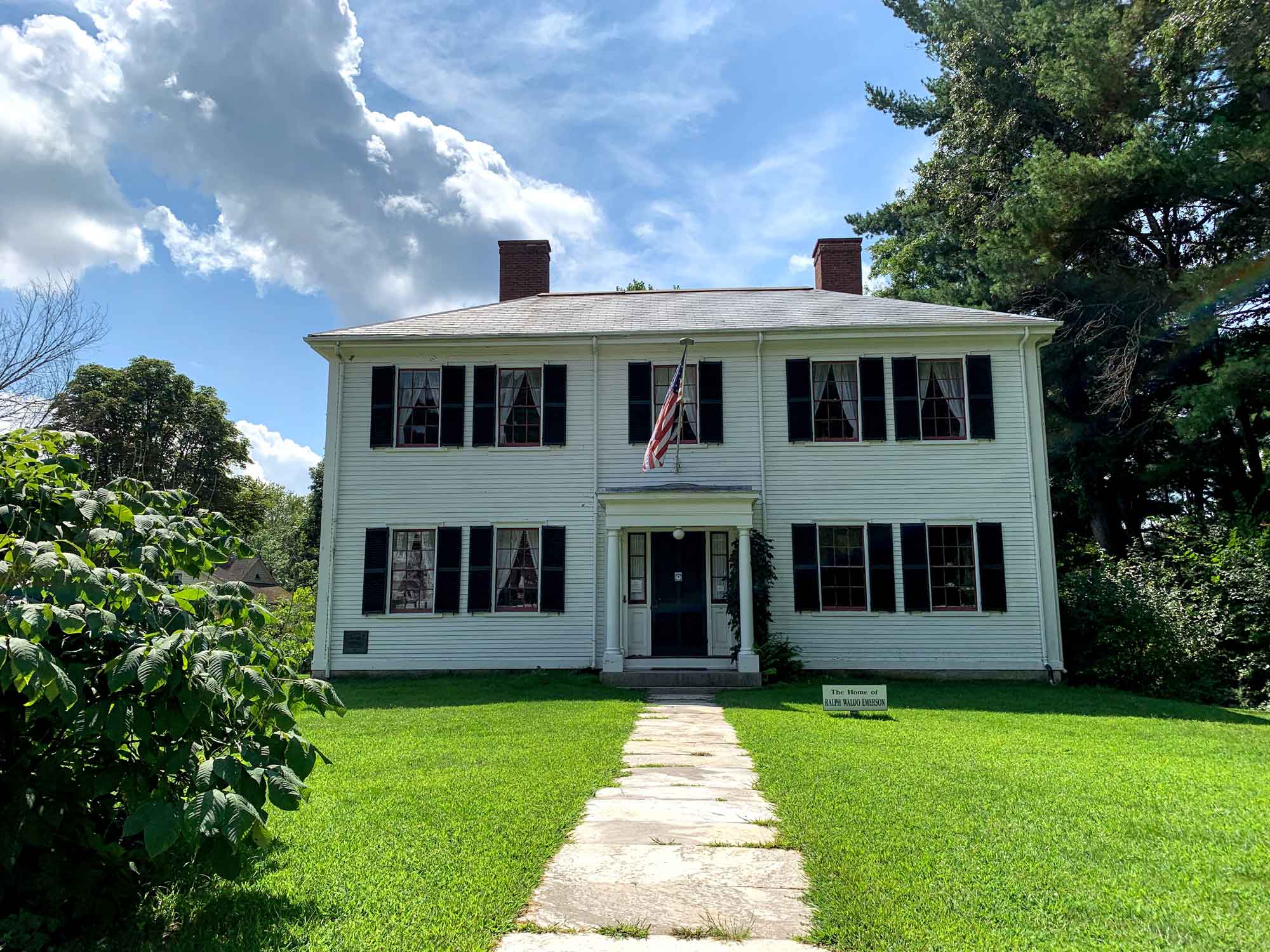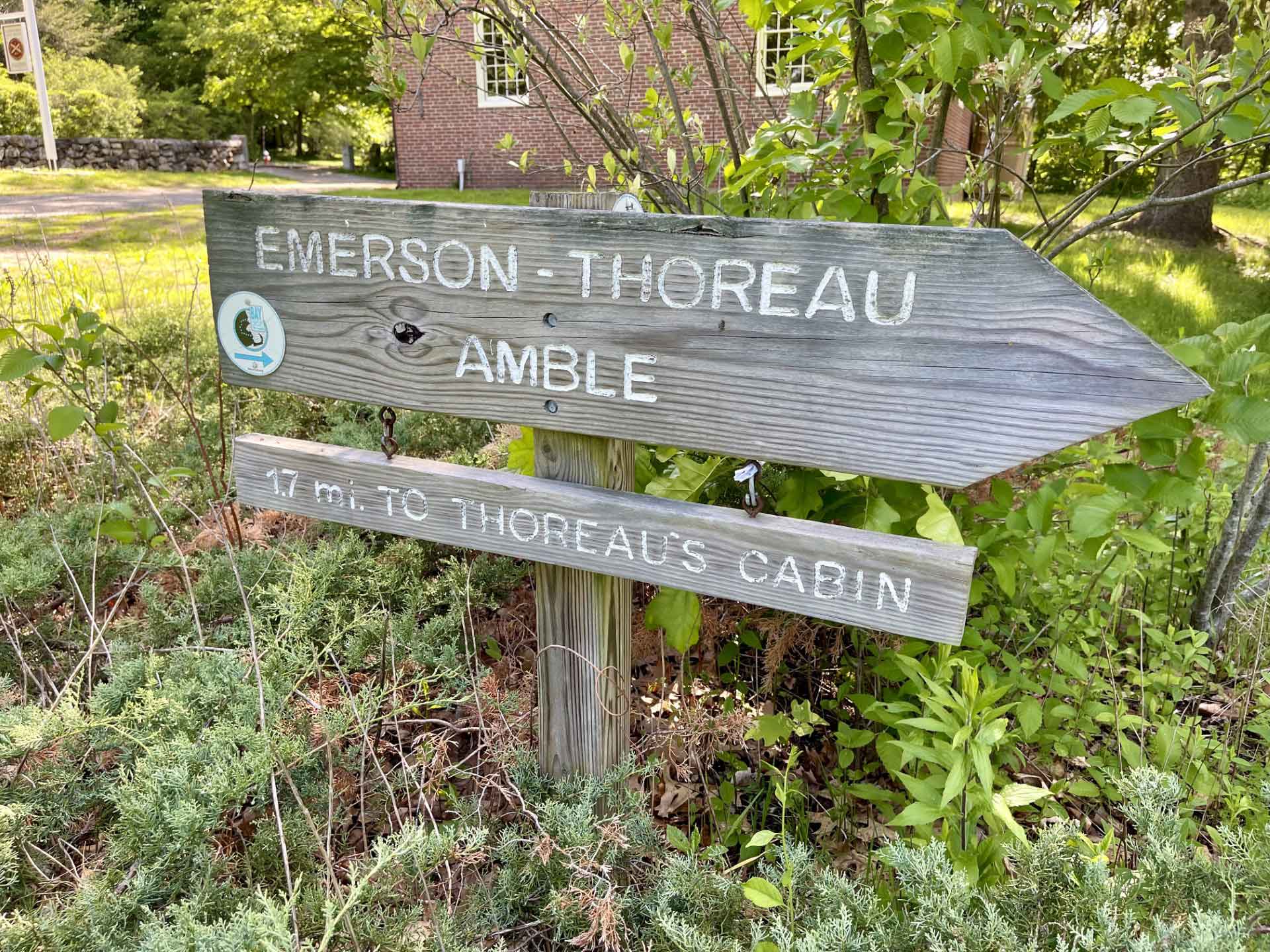Some folks visit Concord for its role in the American Revolution, while others are on a mission to see a favorite author’s home. If you are eager to visit sites related to Concordians who influenced American culture thanks to their connection to Transcendentalism, here is a nice way to turn that interest into a pleasant walk in Concord, Massachusetts.
Transcendentalism is basically a spiritual, literary, and philosophical movement centered on the goodness of man, the importance of nature, and individualism. The movement started in Concord with Ralph Waldo Emerson, the father of Transcendentalism. Friends of his who were also part of this calling here in Concord include Henry David Thoreau and Bronson Alcott.
One aspect of Transcendentalism is a person’s connection to nature. Thoreau not only preached this in his writings and lectures but practiced it in his daily life. In his book Walden, or Life in the Woods, written after living two years, two months, and two days at Walden Pond, Thoreau urged others to simplify life as he had.
Bonson Alcott wholeheartedly embraced Transcendentalism, moving his family (which included the young Louisa May Alcott) to the Fruitlands community in the early 1840s. Alas, the experimental community did not last – having begun in the fall with no plan for ensuring proper food for winter! Despite the failure of his communal living experiment, Alcott kept his Transcendentalist ways throughout his long life. He even started a School of Philosophy, which still stands on the grounds of the Louisa May Alcott Orchard House today.

School of Philosophy
| ©Beth van DuzerAlthough a well-known author and figure of Concord, Nathaniel Hawthorne was not a fan of Transcendentalism. After leaving a job at the Custom House in Salem, he moved to a Transcendentalist community at Brook Farm in 1841. Hawthorne was disappointed by communal living and chose to leave after a short time. The experience did provide him with material for The Blithedale Romance – a novel which dramatized the conflict between the ideals of a commune and the private desires and romantic rivalries of its members.
Now that you have met the cast of characters and learned a little about how they are related to the Transcendental movement in Concord, you can practice walking in nature, just as Emerson and Thoreau did almost daily, and discover more!
Walden Pond is a must-visit destination for a Transcendental day trip. It is here that Henry David Thoreau famously spent two years, two months, and two days living away from society and reveling in nature (on his good friend Emerson’s property!) and a replica of his cabin is a great place to begin your exploration of the life of one of Concord’s most famous authors. Today, the pond is a Massachusetts State Reservation. The park frequently closes in summer when the parking lot is full. Starting your visit here earlier in the day may keep you from being turned away if the park has reached capacity.
After leaving Walden Pond, enjoy breakfast in one of Concord’s restaurants or coffee shops. Then, drive or walk down Lexington Road near Concord Center. Louisa May Alcott’s Orchard House is where Bronson Alcott, the father of renowned author Louisa May Alcott, hosted summer adult education at the School of Philosophy. This inspirational building, along with the beautiful grounds, are part of the tour at Orchard House.
After you leave Orchard House, a short stroll along Lexington Road will bring you next door to The Wayside, home (at different times) to Nathaniel Hawthorne, as well as the Alcott family. The Wayside is part of Minute Man National Historical Park. Even if public tours are not scheduled, you can still walk around the outside of the historic home.
As you turn back towards Concord Center, you will see your next stop - the Concord Museum – a great place to see objects owned by some of your Transcendental heroes. Newly renovated galleries span the arc of Concord’s history from the Indigenous peoples of this land to Concord’s role in the American Revolution and the Transcendentalist movement. Here, you will find furnishings from the original study of Ralph Waldo Emerson, and Thoreau’s desk, bed, and chair that were in his cabin at Walden Pond.

Ralph Waldo Emerson House
| ©Beth van DuzerAcross the street from the Concord Museum is The Home of Ralph Waldo Emerson, which he nicknamed Bush. Inside the home is the location of the original study (furnishings are now at the Concord Museum), along with a myriad of items that belonged to Emerson and his family.
If you wish to spend time walking in Concord, as many of the Transcendentalists did, near the home of Ralph Waldo Emerson is the entrance to the Emerson-Thoreau Amble. This Transcendental Trail winds through wetlands and woods on its way to Walden Pond. If you want to walk the entire trail to Walden Pond from the beginning of the Amble, plan for it to take about 40 – 60 minutes, as the trail is about 1.7 miles each way. And, if you walk all the way around the pond, triple your mileage and time. Walking a portion of the Emerson-Thoreau Amble may be the best choice if you are trying to visit other locations on the same day.

Emerson Thoreau Amble Sign
| ©Beth van DuzerA perfect place to end your Transcendental trip is Sleepy Hollow Cemetery. Henry David Thoreau, Nathaniel Hawthorne, Bronson Alcott, and Ralph Waldo Emerson are all buried along Authors Ridge. As they were neighbors in life, they are neighbors in death. Just remember, Emerson’s house was a little further down the road from the others during his life; therefore, his grave in death is also just a little further down the ridge from his friends.
Bonus Location! If you are visiting on the weekend, Thoreau Farm, the birthplace of Henry David Thoreau, has free tours led by docents. On the tour, you will see the room where Thoreau was born and learn how anyone can rent the birth room as a writer’s retreat.
Hopefully, this brief guide will give you an idea of how to spend your day exploring a fascinating part of Concord’s history. Turn to “Historic Concord: Plan Your Visit” in this issue to find open dates/times to visit each of these beautiful places. You can also learn more about Transcendentalism, Transcendentalists, and Concord in The Transcendentalists and Their World by the bestselling author of The Minutemen and Their World and winner of the Bancroft Prize, Robert A. Gross.


